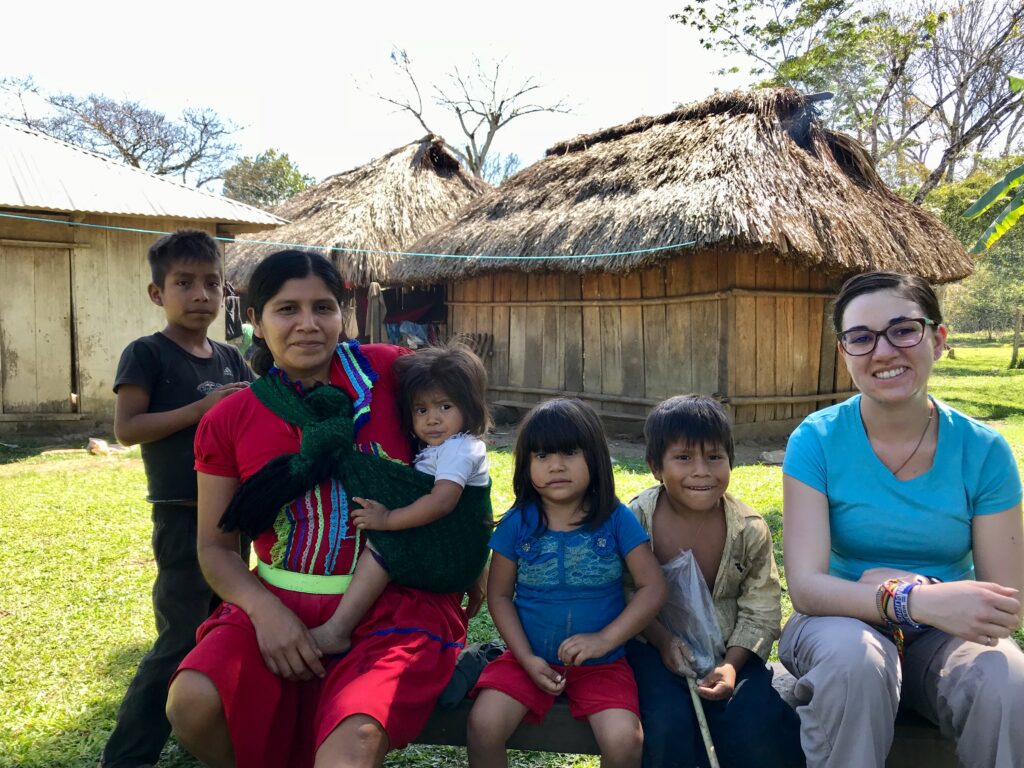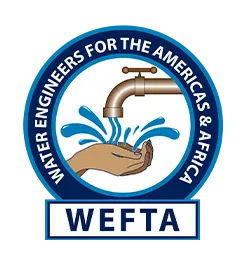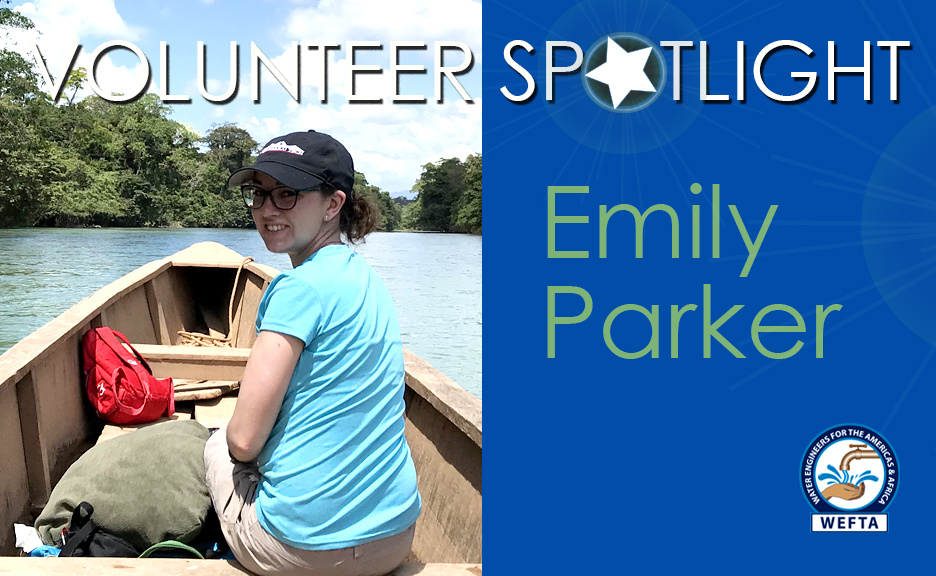Emily Parker will never forget canoeing up a river and hiking through the jungle to access community water projects in isolated areas of southern Mexico. The WEFTA volunteer relishes the opportunity to visit these places, which are rarely seen by outsiders. So far, Emily has done field work in five countries. An Albuquerque-based engineer, she also works remotely to help design WEFTA projects in South America and Africa. Emily and her civil engineer husband, Stephen Parker, are a WEFTA couple, and have worked together on a project in Ethiopia.
Introduced to WEFTA through coworkers
Emily credits several of her coworkers with introducing her to WEFTA when she was an Engineer in Training in 2014. She notes that several of her coworkers were, and still are, WEFTA volunteers. She began working with one of them to design a WEFTA project in Honduras. Shortly after that, she had the opportunity to travel with the organization to Honduras to see the construction of that project.
Engaging the community promotes sustainability
The WEFTA model of community engagement and development is, according to Emily, “one of the best of any NGO that I’ve seen.” She notes, “WEFTA does an amazing job of engaging the community so that they take ownership of the project from the very beginning. This leads to sustainability and the ongoing success of each water project because it is the community that feels the responsibility of taking care of the system.”
Emily believes WEFTA’s in-country partnerships are critical to the success of WEFTA projects. These partners, according to Emily range from local hydrologists and engineers to water system operators, community leaders, and members of the communities. “WEFTA does not come in and take over water projects,” Emily stresses, “but rather comes alongside these partners and works with them on water projects. Without our in-country partners, WEFTA would not be able to do what we do in helping establish sustainable projects that are going to be taken care of long after WEFTA volunteers return to the USA.”
For her part, as she approaches a 10-year anniversary of WEFTA volunteerism, Emily happily anticipates continuing to support ongoing projects, especially in Africa, by assisting with design and planning work.
Emily Parker visiting with WEFTA project beneficiaries in the remote community of Miguel Hildago in Chiapas, Mexico


